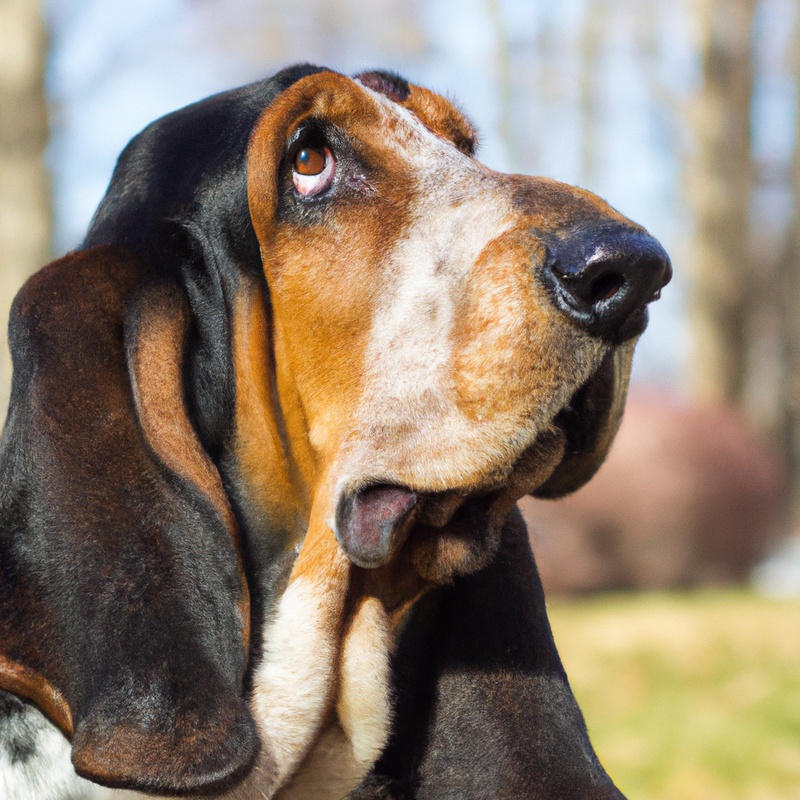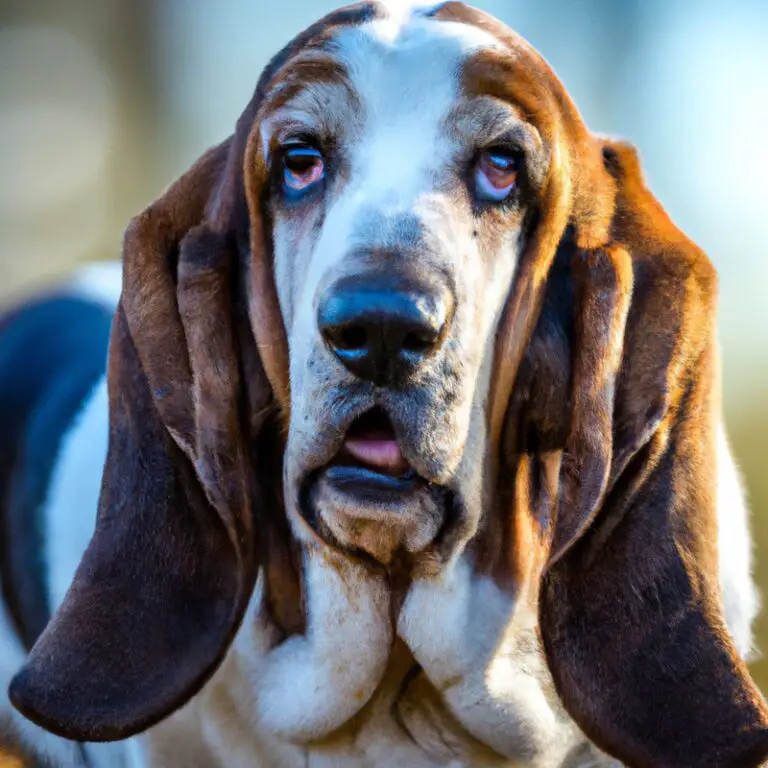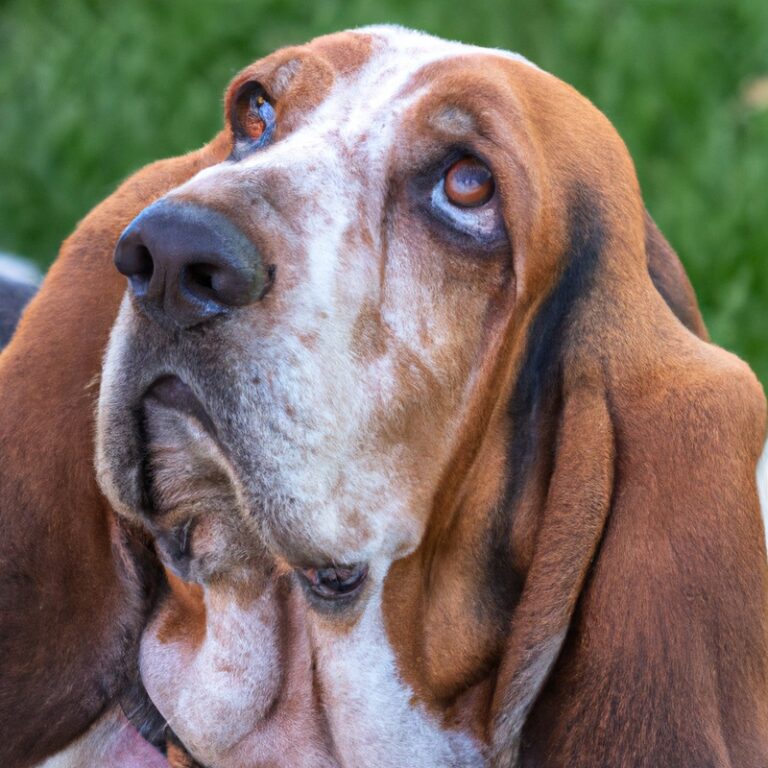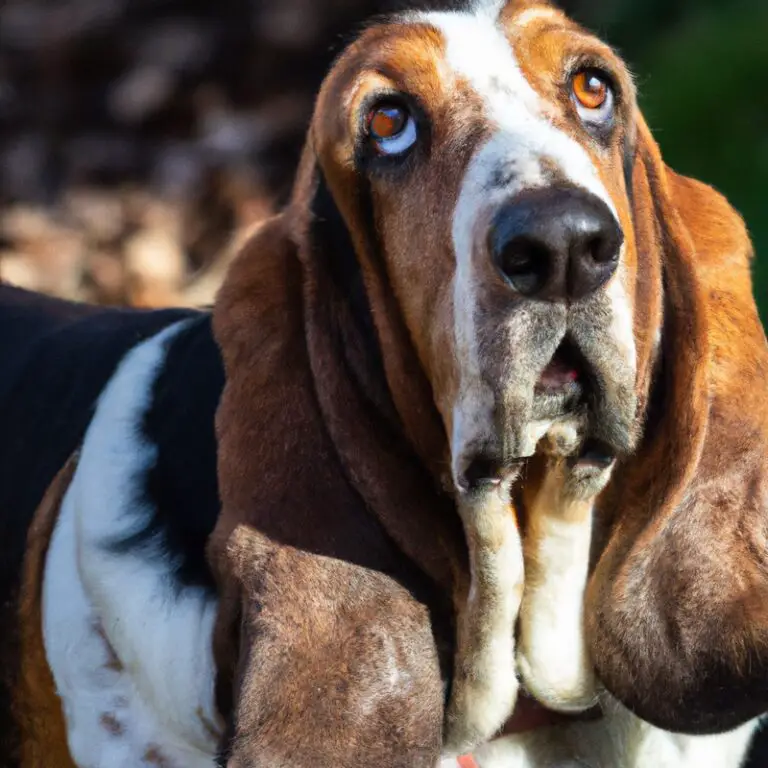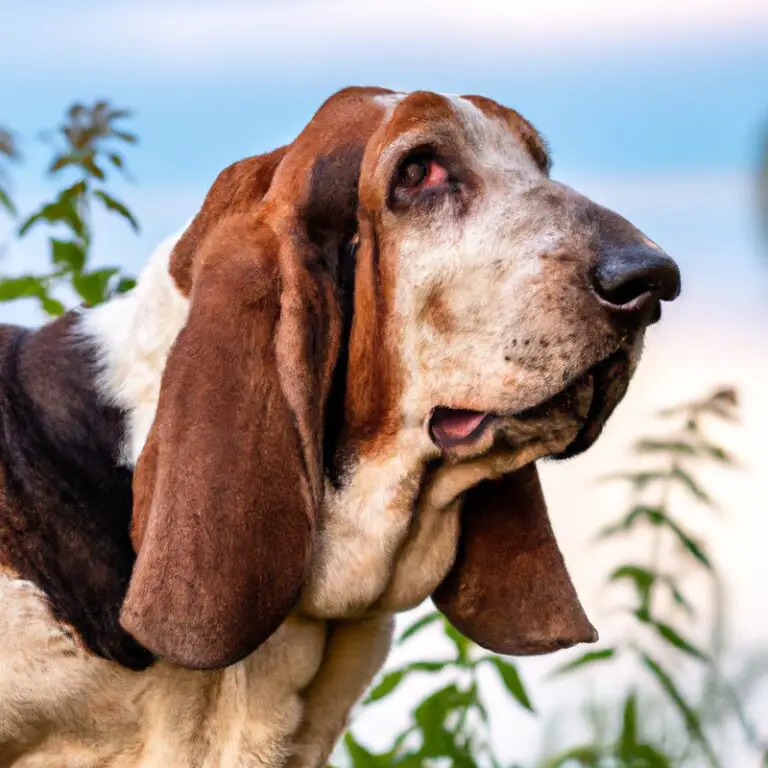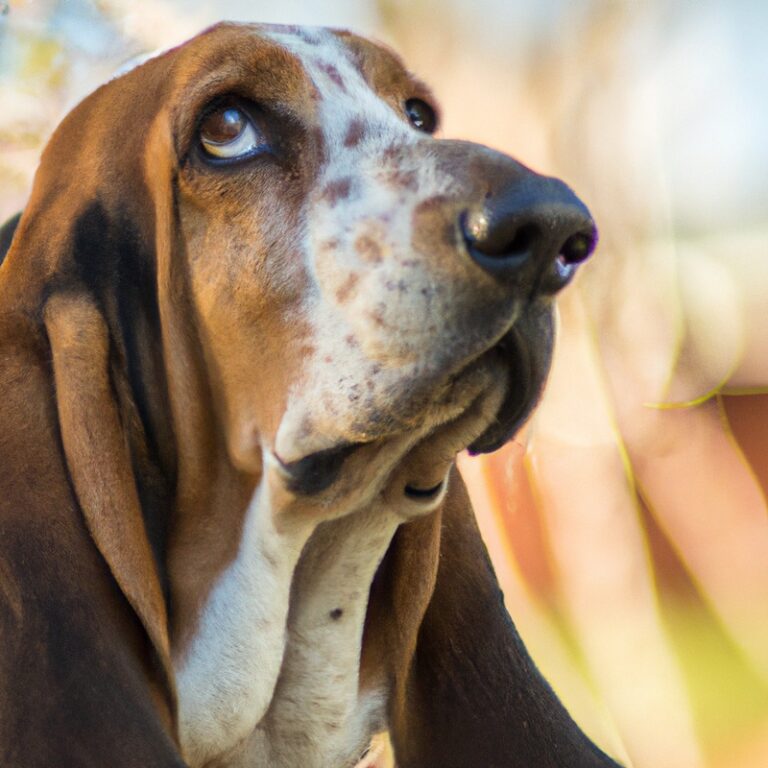Do Basset Hounds Have a Strong Sense Of Smell?
Key Takeaways:
- Basset hounds possess an exceptional sense of smell.
- Their sense of smell is among the strongest of all dog breeds.
- Basset hounds’ scent capabilities make them ideal for tracking and detection tasks.
- This breed’s strong sense of smell can sometimes lead to stubborn behavior when they catch an intriguing scent.
Imagine being able to smell the aroma of your favorite dish from miles away or detecting the scent of a hidden treasure effortlessly.
While we humans rely on our eyes and ears, our furry friends, the Basset Hounds, possess an extraordinary sense of smell that surpasses our limited olfactory abilities.
These droopy-eared canines have been revered for their exceptional scent detection skills throughout history.
In this article, we’ll delve into the world of Basset Hounds and explore the reasons behind their reputation for having an incredibly strong sense of smell.
Get ready to uncover the secrets of their remarkable aroma-detecting prowess! Are you ready?
Let’s dive in!
| Basset Hound | Other Breeds | |
|---|---|---|
| Sense of Smell | Strong | Varies |
| Average Number of Scent Receptor Genes | 220 million | Approximately 160 million on average |
| Achievements in Scent Detection | Excellent tracking and scent detection abilities; commonly used in search and rescue operations | Some breeds also excel in scent detection, but not as consistently as Basset Hounds |
| Physical Characteristics | Large ears and long noses that help capture scents; droopy skin around the face to trap the scent particles | Physical characteristics vary among breeds and may or may not aid in scent detection |
| Training Required | Training is still necessary to refine the scent detection skills | Training is required for scent detection in most breeds |
| Overall Verdict | Yes, Basset Hounds have a strong sense of smell. They are highly regarded for their scent detection abilities. | The scent detection abilities of other breeds may vary, but they generally do not match the consistency of Basset Hounds. |
Overview of Basset Hound breed
Physical characteristics of Basset Hounds
Basset Hounds have distinct physical characteristics that make them easily recognizable. They have long, droopy ears that hang down beside their faces and a wrinkled forehead.
Their body is heavy and low to the ground, with a deep chest and short legs.
Basset Hounds have a loose, saggy skin and a long, smooth coat that comes in various colors, such as tri-color, lemon and white, or red and white. Their expressive, soulful eyes are usually dark in color.
Overall, their unique physical traits contribute to their charming and lovable appearance.
Basset Hounds’ history and origins
Basset Hounds have a fascinating history and origins. They were originally bred in France in the late 19th century for hunting small game, particularly rabbits.
The breed was created by selectively breeding French scent hounds with droopy ears and a keen sense of smell.
Basset Hounds have a unique body structure with short legs and a long body that helps them scent closer to the ground and move slowly, allowing hunters to keep up with them on foot. Today, Basset Hounds are cherished as family pets and continue to showcase their exceptional scenting abilities in various scent-related activities.
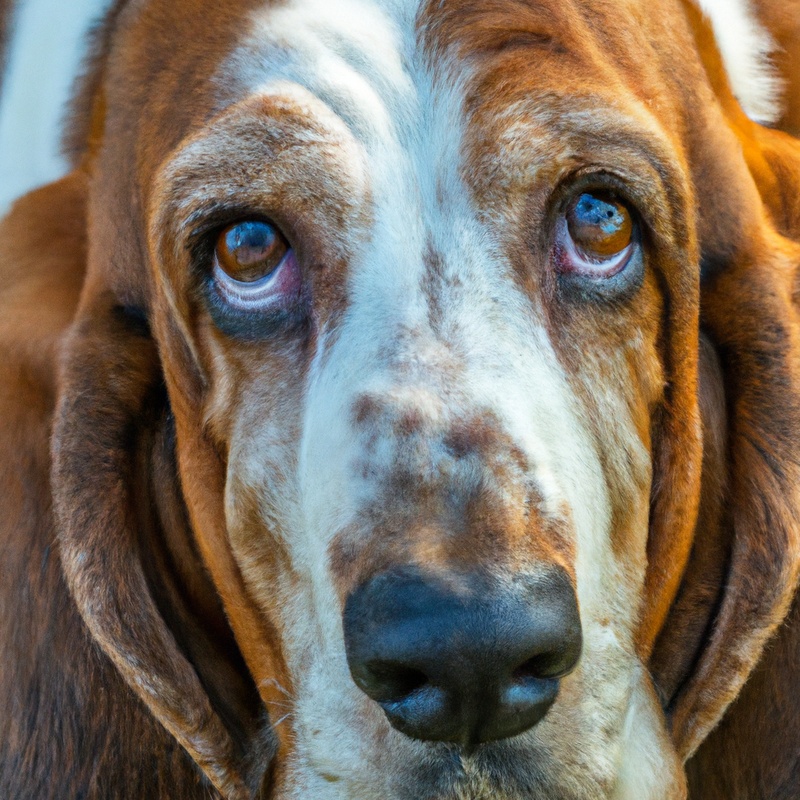
Understanding a dog’s sense of smell
Comparison of dog’s sense of smell with humans
A dog’s sense of smell is far superior to that of a human.
While humans have around 5 million olfactory receptors, dogs have about 220 million.
This means dogs are able to detect odors that are thousands of times weaker than what a human can pick up.
Additionally, the part of a dog’s brain that is responsible for processing smell is much larger than in humans.
This allows them to differentiate between different scents and track smells over long distances.
Dogs truly have a remarkable sense of smell that surpasses our own capabilities.
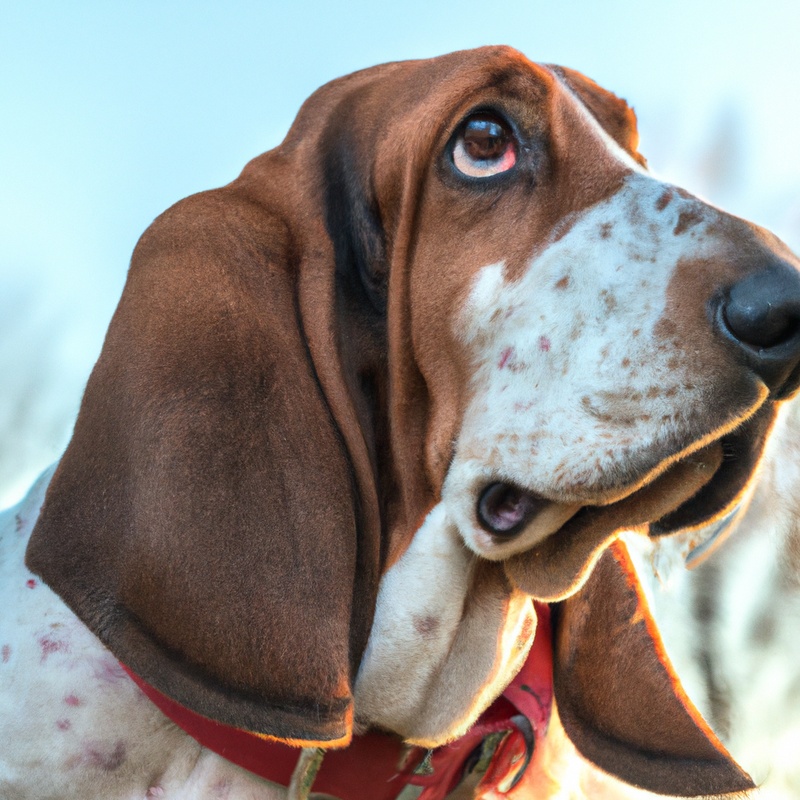
Explanation of the anatomy of a dog’s nose
A dog’s nose is an incredibly intricate and sensitive organ that allows them to perceive the world through scent.
It consists of several key components, including the nostrils, nasal passages, and olfactory epithelium.
Within the nasal passages, there are turbinates and scent receptors that capture and process odor molecules.
The olfactory epithelium, located at the back of the nose, contains millions of scent receptors that are far more numerous than in humans.
These receptors send signals to the brain, enabling dogs to differentiate and identify various scents with remarkable accuracy.
Basset Hounds and their sense of smell
Basset Hounds’ reputation for having a strong sense of smell
Basset Hounds have a well-deserved reputation for having a strong sense of smell.
Their noses are incredibly effective at detecting scents, and they are often used as scent detection dogs in various activities.
Their long ears and droopy skin actually help to trap and concentrate scents, giving them an advantage when it comes to tracking and hunting.
Whether it’s searching for lost items or helping with search and rescue operations, Basset Hounds’ scenting abilities are truly impressive.
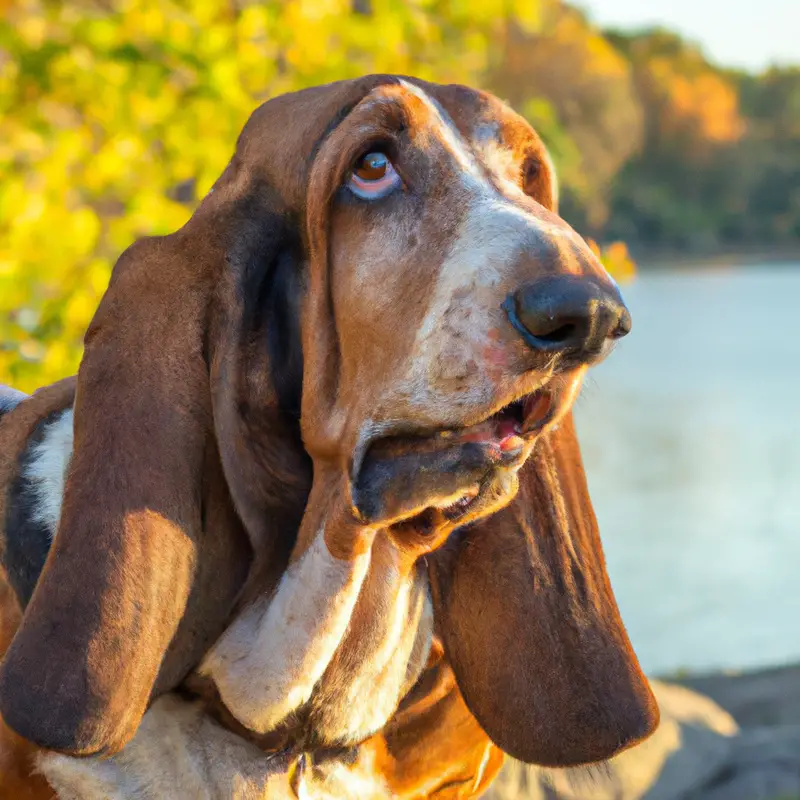
Explanation of Basset Hounds’ scent detection abilities
Basset Hounds have exceptional scent detection abilities.
Their incredible sense of smell is due to their large nostrils and long, droopy ears that help trap and funnel scents towards their nose.
This breed has been specifically bred for their tracking and scenting capabilities, which makes them highly skilled at detecting and following scents.
Basset Hounds excel in activities such as search and rescue, tracking, and even sniffing out contraband.
Their scent detection abilities are one of the reasons why they are often used in K-9 units and as hunting companions.
Examples of Basset Hounds’ use in various scent-related activities
Basset Hounds are well-known for their exceptional sense of smell, making them ideal for scent-related activities.
Here are some examples of how Basset Hounds are utilized in various scent-related tasks:
- Search and Rescue: Basset Hounds are often trained to locate missing persons or victims in disaster situations. Their keen sense of smell enables them to detect human scent even in challenging environments.
- Truffle Hunting: Basset Hounds are particularly skilled at finding truffles, a type of edible fungus. Their powerful nose can detect the unique aroma of truffles, making them valuable assets in the truffle industry.
- Scent Detection Dogs: Basset Hounds excel in detecting illegal substances, such as drugs or explosives. Their ability to follow scents with precision helps law enforcement agencies in their efforts to maintain safety and security.
- Tracking Game: Due to their exceptional scent tracking abilities, Basset Hounds are often used in hunting activities. They can follow the scent trail left by wounded animals, making it easier for hunters to track and retrieve their game.
These examples demonstrate the versatility and effectiveness of Basset Hounds when it comes to scent-related tasks.
Their exceptional sense of smell sets them apart and makes them a valuable asset in various fields.
Factors that contribute to Basset Hounds’ strong sense of smell
Genetics and breed characteristics
Basset Hounds’ strong sense of smell can be attributed to their genetics and breed characteristics. As a breed, Basset Hounds have been selectively bred for their scenting ability.
They possess a larger olfactory system, including a long, droopy nose that helps them pick up scents more effectively.
Additionally, their loose skin and long ears serve to trap and direct smells towards their nose. These genetic traits, combined with their instinctive tracking behavior, make Basset Hounds excellent scent detection dogs.
Physical features and structures that enhance smell detection
Basset Hounds have several physical features and structures that enhance their sense of smell. Their long, droopy ears help to sweep scent particles toward their nose, while their large, moist nostrils contain a high density of olfactory receptors.
Additionally, Bassets have loose skin with folds around their face, which helps to trap odors.
Their wrinkle-covered brow also helps to channel scents towards their nose. Overall, these physical characteristics make Basset Hounds well-equipped for scent detection tasks.
Training and development of scent tracking skills in Basset Hounds
Training and developing scent tracking skills in Basset Hounds is a rewarding and enjoyable process. It starts with introducing them to different scents and teaching them to recognize specific smells.
Using positive reinforcement techniques, such as treats and praise, helps Basset Hounds associate scent detection with rewards.
As they progress, training becomes more complex, with exercises like scent discrimination and following scent trails. Consistency and patience are key in developing their tracking abilities.
Regular training sessions and exposure to different scent environments will help Basset Hounds become skilled scent trackers.
Practical implications of Basset Hounds’ strong sense of smell
Usefulness in hunting and tracking
Basset Hounds’ strong sense of smell makes them incredibly useful in hunting and tracking. They have a natural instinct for finding and following scents, making them valuable assets in activities such as search and rescue, tracking down wounded game, and locating missing persons.
Their ability to lock onto a scent and track it for long distances is truly remarkable.
Additionally, their low stature and slow pace allow them to navigate through dense underbrush without disturbing the surrounding environment. Basset Hounds are truly exceptional when it comes to honing in on scents and utilizing their sense of smell for hunting and tracking purposes.
Challenges of owning a dog with a strong sense of smell
Owning a dog with a strong sense of smell, like a Basset Hound, can present certain challenges. Firstly, their powerful nose can lead to distractions during walks or obedience training sessions.
They may become fixated on scents and be less responsive to commands.
Secondly, their heightened sense of smell can also make them more prone to wandering off in search of interesting scents, which can be a safety concern. Additionally, their sensitive noses may lead to more frequent snacking or scavenging behaviors, as they are easily enticed by food smells.
To address these challenges, it’s important to provide plenty of mental and physical stimulation to keep their noses engaged.
Regular training and recall exercises can also help to manage their wandering tendencies. Finally, ensuring a secure and dog-proofed environment can help prevent unwanted scavenging behaviors.
Tips for harnessing and managing Basset Hounds’ scenting abilities
To effectively harness and manage a Basset Hound’s scenting abilities, here are some tips:
- Provide mental stimulation: Engage your Basset Hound in scent-related activities like puzzle toys, scent games, and hide-and-seek games to keep their mind sharp and satisfied.
- Positive reinforcement training: Consistently reward your Basset Hound for successfully identifying and tracking scents. This will strengthen their scent detection skills and encourage them to focus on scent-related tasks.
- Use scent-specific commands: Teach your Basset Hound specific commands such as “search,” “track,” or “find it” to indicate that they should start using their scenting abilities. This will help them understand their role in scent-related activities.
- Gradual exposure to scents: Introduce your Basset Hound to a wide range of scents gradually. Start with familiar scents and then gradually move on to more complex ones. This will enhance their scent discrimination abilities.
- Consistent practice: Regularly engage your Basset Hound in scent-related activities to maintain their skills. Consistency is key to improving and maintaining their scenting abilities.
Final Verdict
Basset Hounds undeniably possess a remarkable sense of smell that sets them apart from many other breeds.
Their ancestry as scent hounds and their physical characteristics contribute to their exceptional olfactory abilities.
From hunting and tracking to being valuable members of search and rescue teams, Basset Hounds consistently demonstrate their prowess in scent detection.
However, it is important to note that owning a dog with such a strong sense of smell also comes with its challenges.
Effective training and management techniques can help harness and optimize their scenting abilities.
Overall, Basset Hounds’ strong sense of smell is a defining characteristic that makes them an extraordinary and useful breed.

